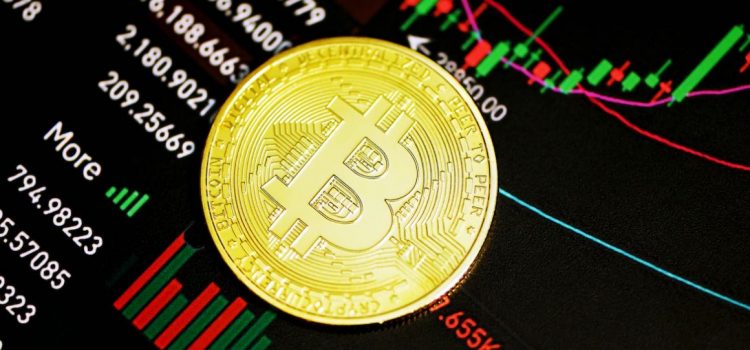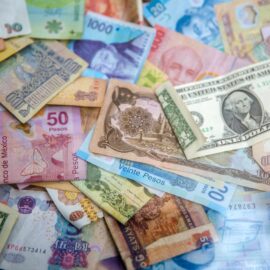

This article is an excerpt from the Shortform book guide to "The Bitcoin Standard" by Saifedean Ammous. Shortform has the world's best summaries and analyses of books you should be reading.
Like this article? Sign up for a free trial here.
How does inflation influence the value of bitcoin? Why is bitcoin not affected by inflation?
Bitcoin is a very “hard” currency and thus does not lose value due to inflation. According to economist Saifedean Ammous, the “hardness” of money is one of the most important factors determining how good a type of money is.
Here’s why the price of bitcoin isn’t affected by inflation.
Bitcoin Is Hard Money
Ammous explains that the “hardness” of a type of money is the ratio of the total quantity in circulation to the maximum amount that could be added in a given amount of time, usually one year.
For example, wheat has a very low hardness, because it is produced and consumed every year, and so the total supply is about the same as the annual production. By contrast, gold has a very high hardness, because it is relatively scarce and humans have been stockpiling it for thousands of years, so the amount of gold produced by gold mines in any given year is only a tiny fraction of the world’s total gold supply.
Bitcoin is designed such that bitcoins are added to circulation at a predictable rate that is halved every four years, and will cease altogether once the total number in circulation reaches 21,000,000 bitcoins. Thus, bitcoin has a high hardness, and that hardness will continue to increase until all the bitcoins are in circulation, at which point its hardness will become infinite.
(Shortform note: As of 2022, over 90% of the 21,000,000 total bitcoins are already in circulation, and the rate of growth is about 328,500 bitcoins per year, or 1.7% per year. For comparison, the world supply of gold is about 200,000 tons, and global gold production is about 3,200 tons per year, or 1.6%, so bitcoin already has comparable “hardness” to gold.)
Hard Money Prevents Inflation From Redistributing Wealth
Ammous demonstrates the importance of hard money by observing what happens to a society that uses money with low hardness: Over time, all the real value in that society goes to those who provide the supply of money.
As Ammous explains, this is because there’s always a demand for any material that a society uses as money (such as gold or silver), which motivates people to produce it (for example, by mining gold). Yet, increasing the money supply decreases the value of the money that’s already in circulation.
It takes time for the economy to adjust to changes in the value of money, so when producers of money (such as gold miners) sell their product, they receive more payment for it than it will be worth once the economy adjusts to the increased money supply. This is what allows the producers of money to accumulate a greater and greater fraction of society’s real wealth over time.
If the society uses hard money, such as gold or bitcoin, the magnitude of this effect is small. But it gets larger the faster the money supply increases. For example, if the money supply abruptly doubles, then the value of money will be cut in half, so the people who increased the supply will acquire half of the total value that the money supply represented before it doubled.
| Production of Money and Redistribution of Wealth In Capitalism and Freedom, Milton Friedman makes a case that forced redistribution of wealth within a society is unjust. This principle adds weight to Ammous’s concerns about money losing its purchasing power because, as Ammous explains, expanding the money supply effectively results in redistribution of wealth. Friedman argues that all ethical commerce is based on the principle of voluntary exchange. People buy, sell, and trade with each other because of inequalities in resources and abilities that make it mutually beneficial for them to do business with each other. Any involuntary exchange or any redistribution of wealth that benefits some people at the expense of others is morally wrong. He insists that this is the case whether the redistribution takes the form of a band of robbers stealing from a person at gunpoint or a majority of voters enacting laws that collect money from a wealthy minority and distribute it to the less affluent. In light of Ammous’s exposition of how increases in the money supply redistribute purchasing power, it seems Friedman would also have to condemn any actions taken to expand the money supply as immoral. This is because, as we’ve seen, creating new money effectively redistributes purchasing power from everyone who uses the currency to those who produce the currency. And it does this involuntarily through the process of inflation. If expanding the money supply is immoral, then Friedman would likely feel that any moral society would naturally favor hard money, since it severely limits anyone’s ability to expand the money supply. |

———End of Preview———
Like what you just read? Read the rest of the world's best book summary and analysis of Saifedean Ammous's "The Bitcoin Standard" at Shortform.
Here's what you'll find in our full The Bitcoin Standard summary:
- Why bitcoin has the potential to replace the gold standard
- What makes bitcoin stronger than fiat money
- Why bitcoin will never be a global currency for day-to-day transactions






